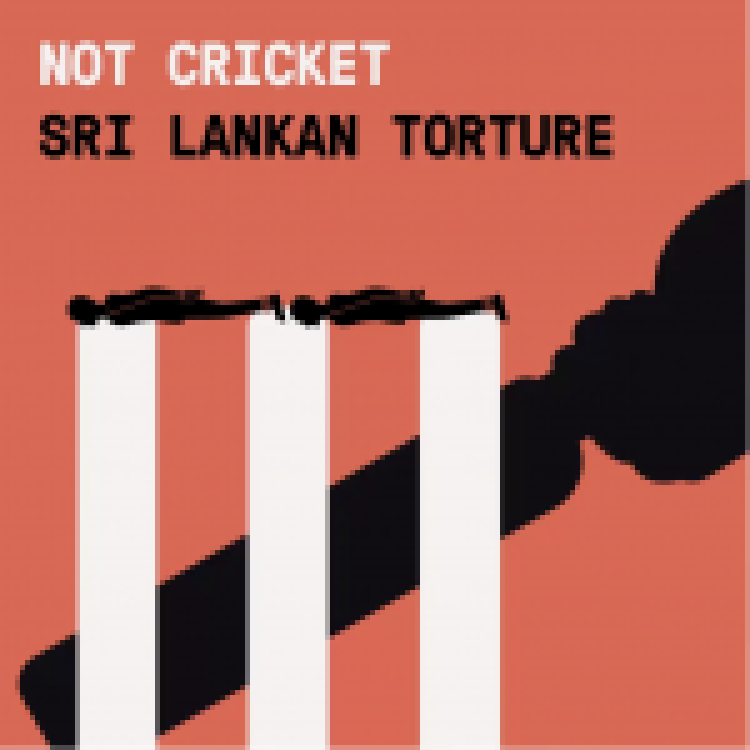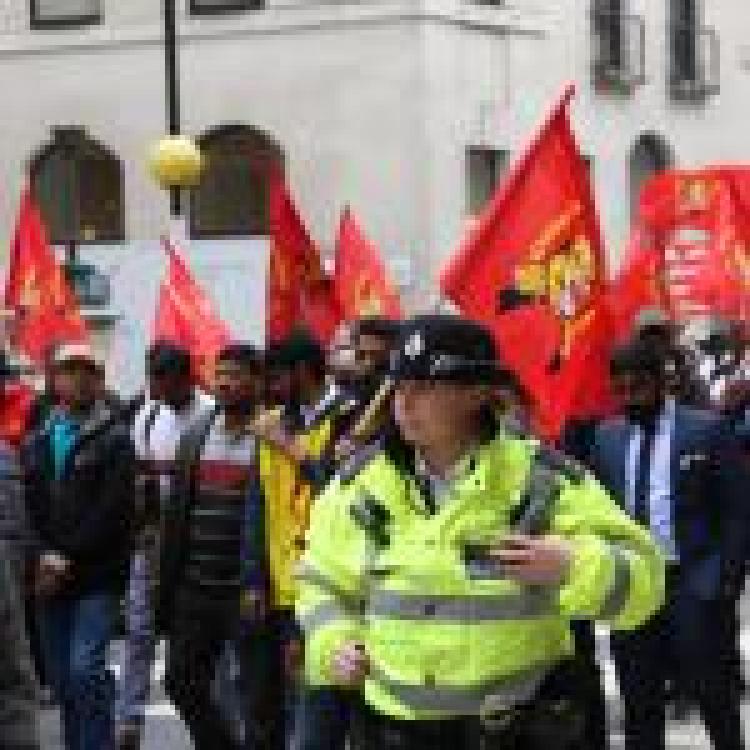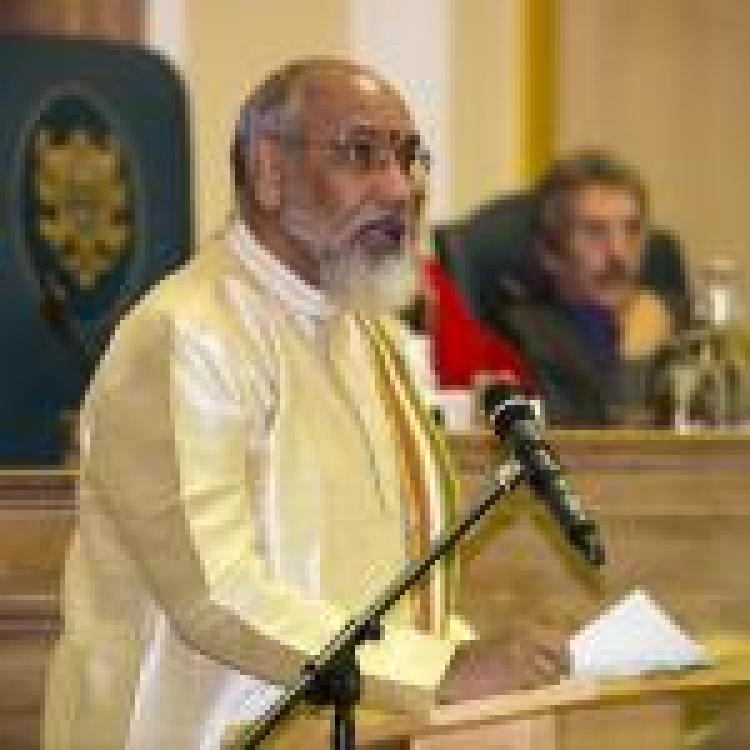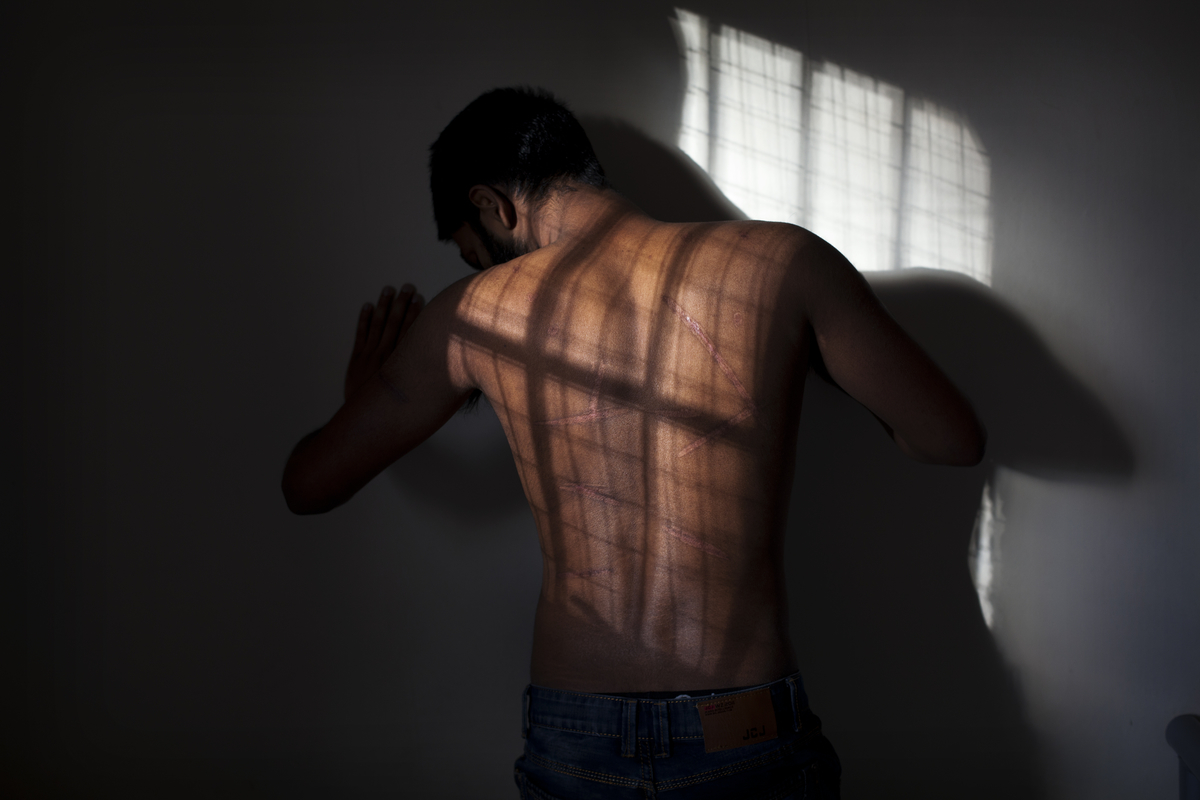
In a new report, the International Truth and Justice Project (ITJP) highlight cases of abduction, torture and rape of Tamils in the North-East for participating in commemorative events, protests or for receiving funds from abroad, over the last year.
The report, which was published today ahead of the United Nations Human Rights Council (UNHRC) session later this month, contains testimonies from 15 Tamils who had been abducted, detained and tortured by Sri Lanka security forces, since Gotabaya Rajapaksa took office as Sri Lanka's president in 2019. The witnesses have now fled the island and reside in the UK.
The ITJP noted that a "new generation of Tamils" are being victimised for exercising their constitutional rights.
"The victims being detained now are generally young and of little intelligence value to the security forces, who appear to be mounting a campaign of repression against legitimate Tamil expression of fundamental rights including protests or calls for accountability," the report stated.
The victims
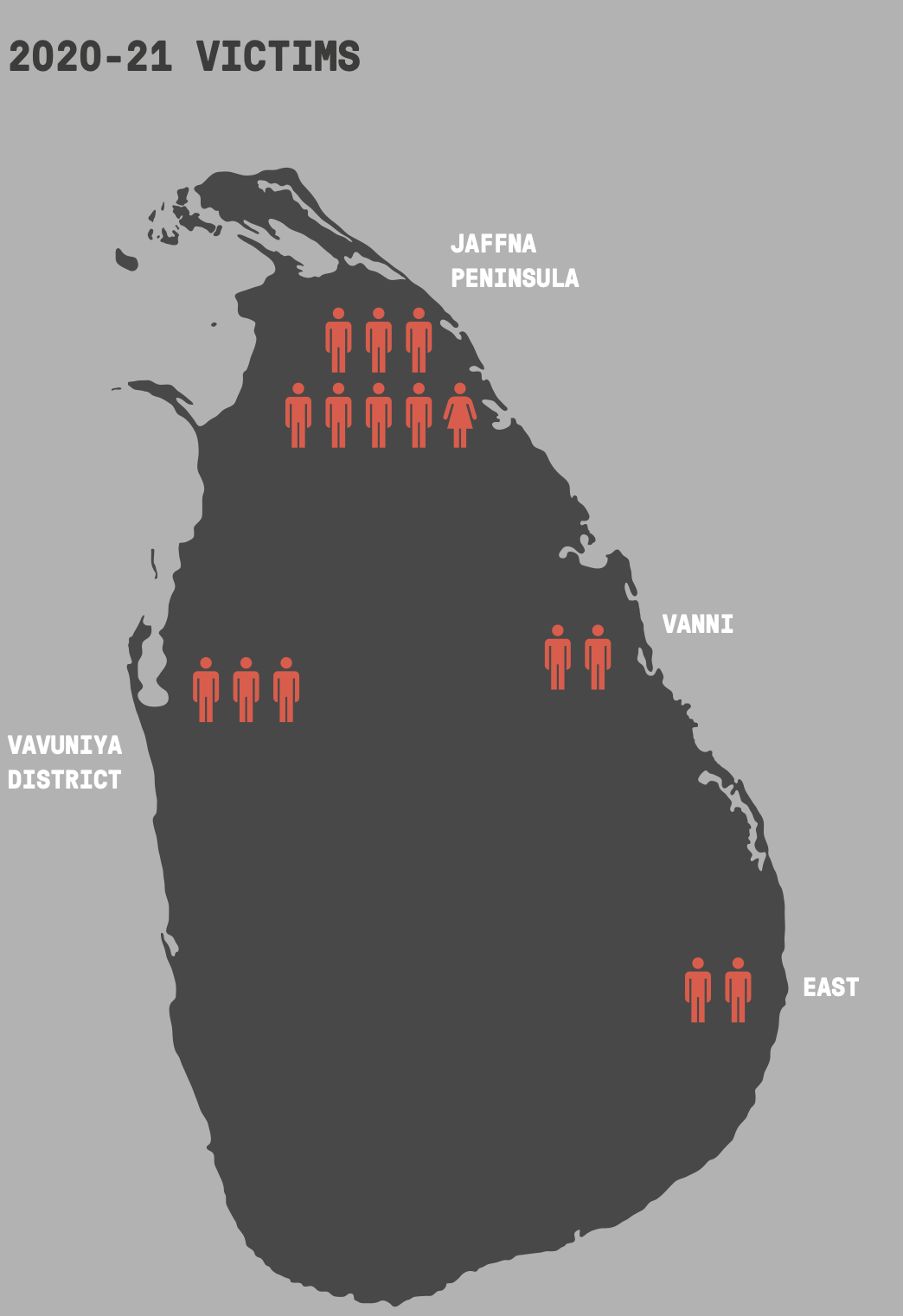
Graphic by ITJP
Out of the 15 Tamils interviewed by the ITJP, three were former Liberation Tigers of Tamil Eelam (LTTE) cadres while the rest were all under the age of 25 and described that they grew up against a "backdrop of militarisation and surveillance."
As Sri Lanka intensifies its crackdown in the North-East, the ITJP highlight that the number of young people being targetted by the state is greater than the number of former LTTE cadres, demonstrating a "growing pattern documented in recent years of young adults being targeted who have increasingly tenuous, and in some instances no, links to the LTTE."
Triggers for detention
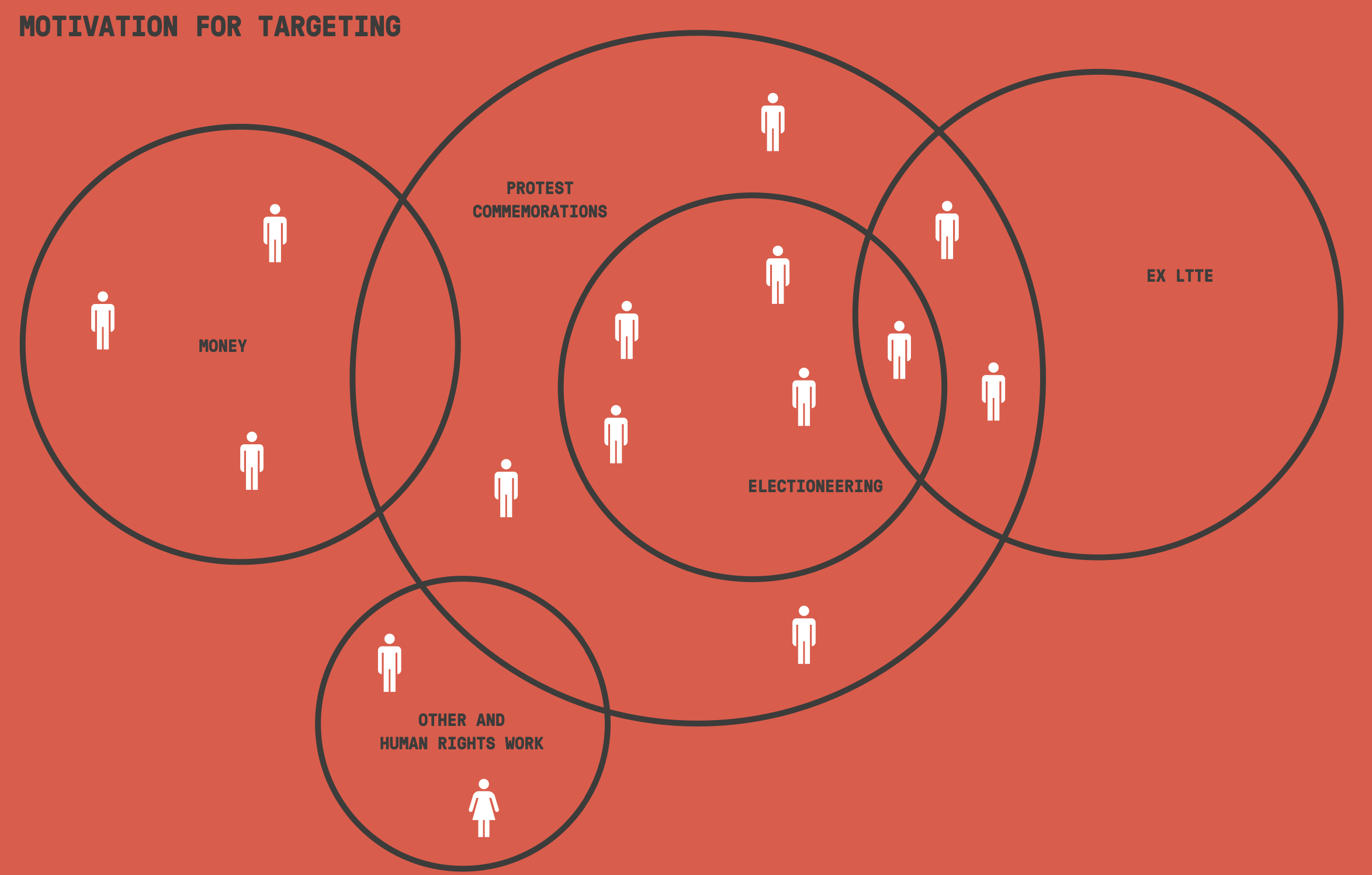
Graphic by ITJP
As none of the victims were formally charged or informed of the reasons for their detention, the ITJP have identified that the victims' participation in peaceful protests, electioneering against the Rajapaksa regime and receiving funds from abroad could be the reasoning for the detention of these individuals.
Earlier this year, thousands of Tamils participated in a march, named 'Pottuvil to Polikandy' (P2P) calling on the international community to heed Tamil calls for justice and accountability. Sri Lankan security forces were heavily deployed across the North-East in attempt to disrupt the march. A series of court orders were also issued, calling for the protest to be stopped. However, Tamil and Muslim campaigners, civil society members and politicians defiantly continued their march.
Following the five day march, several Tamil politicans and campaigners were visited by Sri Lanka's Criminal Investigation Department (CID) and questioned over their participation in the march.
"What is disturbing from one man detained and tortured after the P2P march is that there were clearly others being held with him: 'I could hear a lot of screaming from other rooms, crying out for their mothers. I knew what was going to happen,'" the report documented.
Moreover, efforts by victim survivors in the North-East to commemorate the lives lost in the armed struggle have been suppressed by Sri Lanka's security forces.
Bashana Abeywardene, of Journalists for Democracy in Sri Lanka, also stressed in the report that there were a number of arrests of Tamils "for sharing their thoughts on social media about the dead."
The perpetrators
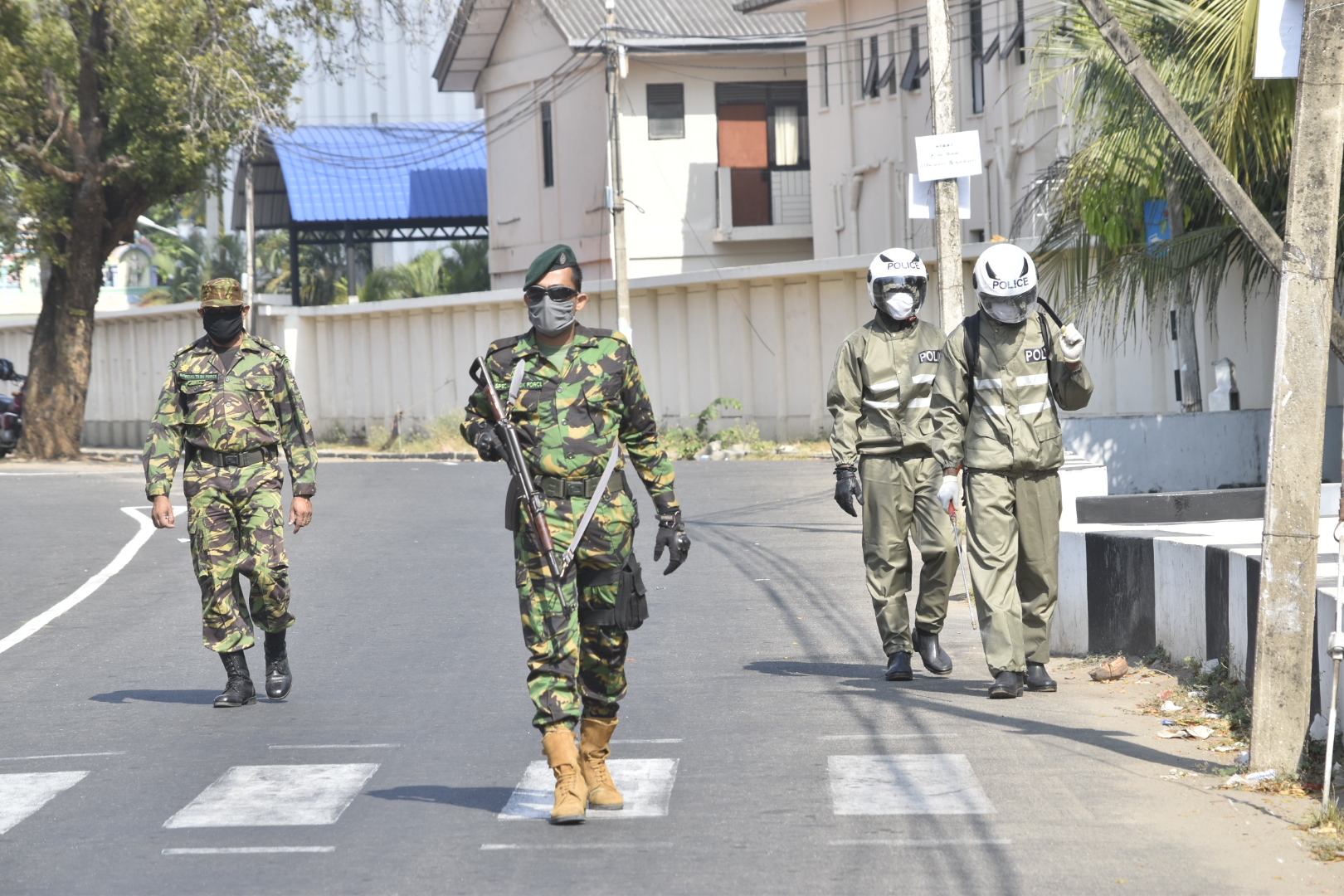
The witness testimonies in the report demonstrate that Sri Lanka's Terrorism Investigation Department (TID) and the military are responsible for the abductions, detentions, torture and sexual violence on the island. Most witnesses identified the presence of men in army uniforms during their detention.
One witness, 'W344', told the ITJP that they were abducted by "men in army uniforms in 2017 (under the Sirisena government) and then again under the current Gotabaya Rajapaksa government."
"In the most recent incident, W344 was taken off roadside in a white van by men in plain clothes with one man in army uniform," the report states.
Torture and sexual violence
ITJP reports that almost all the victim survivors endured degrading and ill treatment as well as sexual violence during their detention.
Most of them were forced to kneel while they were interrogated and often often only in their underwear, and were subjected to various forms of torture. Victim survivors describe being "kicked with boots, punched, slapped and beaten with heavy pipes and sticks, whipped on their backs with wires, subjected to falaka and burned on their flesh with lit cigarettes."
Victims also described being "asphyxiated by having their heads covered in a plastic bag doused in petrol and their heads submerged in water so they half drowned."
Surveillance
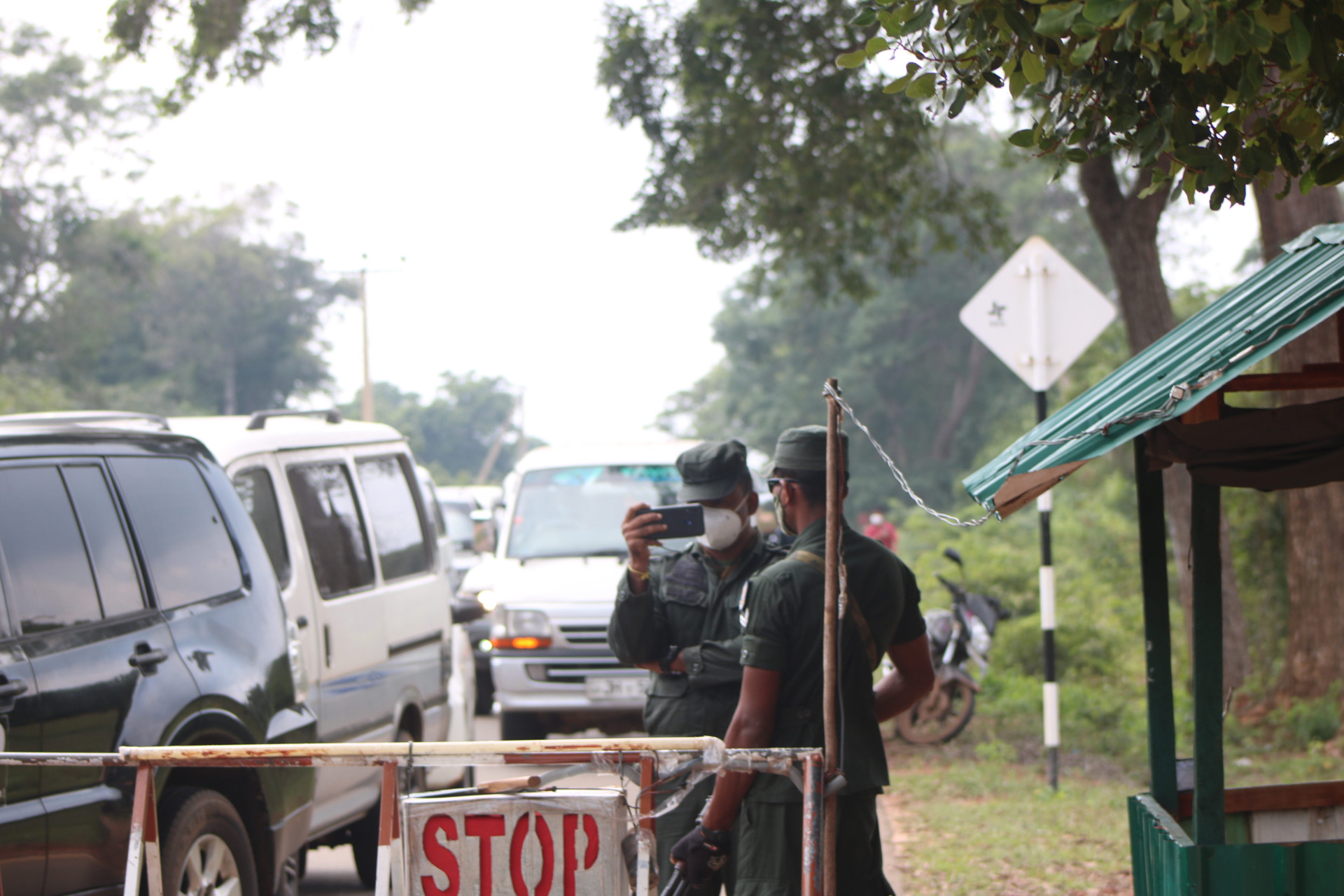
Sri Lankan military photographing protesters participating in Pottuvil to Polikandy march earlier this year.
While the state has always used surveillance to intimidate Tamils, there has been an escalation over recent years. Those who were interviewed by the ITJP highlighted the "constant surveillance by security forces" since the armed conflict ended.
Even after victims flee the island, their families are still subjected to interrogation and threats by the Sri Lankan security forces.
"It is possible this is a way of deterring the victim abroad from speaking out in public, in effect holding their loved ones hostage in return for their silence," the ITJP states in their report.
Recommendations
The ITJP have made a series of recommendations to the Sri Lankan government and the international community to address the "structural impunity" on the island.
"It should be noted that the lack of accountability encourages the repetition of crimes, as perpetrators and others feel free to commit further offences without fear of punishment. This ongoing impunity in Sri Lanka for those responsible for violations amounting to serious human rights violations inflcits additional suffering on victims," the report adds.
The organisation called on the Sri Lankan government to carry out a "prompt, thorough and impartial investigation" in to human rights violations and to implement the recommendations by various UN bodies. They also called on the state to repeal the internationally condemned Prevention of Terrorism Act (PTA) which has been used to disproportionately detain Tamils and Muslims.
ITJP also called on member states to explore applying targeted sanctions such as asset freezes and travel bans on perpetrators of human rights abuses as well as applying "stringent vetting procedures" for Sri Lankan police and military personnel for military exchanges and training programmes.
In a press release, Yasmin Sooka, the Executive Director of the ITJP said:
“This is the ugly face of systematic impunity. The failure of successive governments to prosecute those responsible for the JVP-era violence of 1987-90 and state sponsored violence against Tamils over the last four decades has meant Sri Lankan perpetrators managed to evade accountability and rise up the ranks of the police and army. Now it is ludicrous to expect this system to reform itself through training and capacity building."
“Sri Lanka has entrenched impunity for atrocity crimes. Without criminal accountability, there is no incentive to stop atrocity crimes from recurring. It’s time the international community cancels all international training and capacity building programmes because they are clearly not working,” Ms Sooka added.
Read the full report here.

